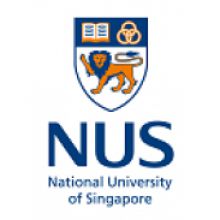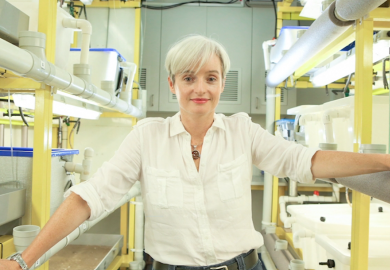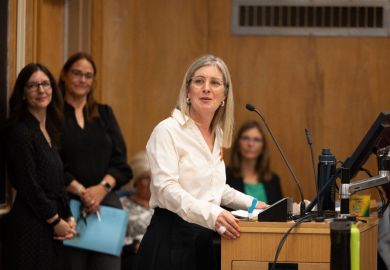History is littered with examples of human advances that changed the world in unexpected ways.
Bubble wrap was originally intended as a novel form of wallpaper, rather than the distraction for bored toddlers that we know and love today; Viagra was developed to lower blood pressure, before it was found to have more uplifting (not to mention lucrative) side-effects.
As for technology, examples abound. The digitally connected world was supposed to bring understanding and harmony; social cohesion through universal access to accurate information.
It didn’t quite work out like that, and as Singapore’s minister for education, Ong Ye Kung, put it at the recent THE World Academic Summit: “It used to be said that knowledge is power; now knowing what to ignore is power.”
The implications of this for the traditional holders of information and knowledge are real, but again perhaps not what was once forecast.
Take the news media, slated by many for extinction a few years ago. Newsprint may indeed be in a death spiral, but while formats change, the fundamentals of professional, trustworthy newsgathering seem more vital today than ever.
So it is with universities: their models are being questioned, their place in society re-evaluated, but their foundations and values are as solid and necessary as ever.
This was a recurring theme in discussions at THE’s summit at the National University of Singapore.
Stephen Toope, vice-chancellor of the University of Cambridge, made the point in a discussion about interactions with industry: “It is not our primary goal to drive economic growth,” he said. “Our contribution starts with good research and good teaching.”
He was not suggesting that collaboration with the private sector or local authorities was unimportant – far from it. Rather, he was reminding us that this is not the fundamental value that universities bring to the table – it is “an extension, not the core of our work”.
There are, of course, others with a more direct focus on economic expediencies, and Singapore is a good place to explore this issue, given its centralised efforts to retrain large portions of the population that it believes are going to be left behind (and out of work) in the years ahead.
This idea – that lifelong learning should sit at the heart of a national strategy for prosperity – is another example of technological change having a dramatic impact, but perhaps not the one predicted.
Digital formats are being embraced by universities (rather than delivering the kiss of death), and the age of automation leaves universities with even more work to do to equip people of all ages with the skills to prosper alongside (or as overlords to) the robots that are coming to steal their jobs.
The National University of Singapore is responding in a range of ways, for example launching 20-year enrolment to guarantee students that their alma mater will be with them as their careers develop, and the world around them changes.
Nearby, the Singapore Institute of Technology describes itself as an institute of applied learning, and takes a similar approach. In an interview in our news pages this week, its president Tan Thiam Soon says that “no amount of formal education is going to be enough”, so his message to his students is simple: “When you graduate, you don’t graduate.”
This commitment to lifelong learning should be sobering for those elsewhere in the world, including the UK, where part-time higher education in particular has been run into the ground.
If Singapore’s experiment pays off, its universities will play a much greater role in the future life and prosperity of the nation – higher education, but not quite as we know it.
POSTSCRIPT:
Print headline: Graduate, but never leave
Register to continue
Why register?
- Registration is free and only takes a moment
- Once registered, you can read 3 articles a month
- Sign up for our newsletter
Subscribe
Or subscribe for unlimited access to:
- Unlimited access to news, views, insights & reviews
- Digital editions
- Digital access to THE’s university and college rankings analysis
Already registered or a current subscriber?









